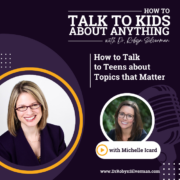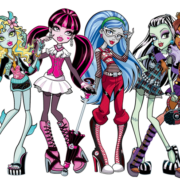
Good Morning America brought me into the studio to talk to Lara Spencer this morning (video) about Iggy Azalea, her departure from social media, and what her experience with haters might tell us about cyberbullying. Let’s discuss!
Should people just give up on social media if they’re having these kinds of problems?
Whether social media is for you or not is a very personal decision.
If you are a celebrity with millions of fans or a non-celebrity, you may encounter the occasional troll who aims to provoke you. It can be stressful and upsetting. So if these interactions are influencing how you feel about yourself or how you go about your day to day life, the internet may not be a healthy space for you. If, however, you feel that interacting with your fans or those who know you and love you is worthwhile and outweighs the cons, continue on but know that if you are dealing with an actual cyberbullying situation (i.e. sexually explicit messaging, hate crime language, threats), you must document it and report it.
How can you avoid online haters?
You have several choices. You can:
(1) Shut off or limit personal interaction with social media, as we see in Iggy Azalea’s circumstance. Celebrities are always going to be targeted because you are talking about millions of fans and some who feel entitled to criticize and demean at will. Non-celebrities can typically be more choosy about their online interactions.
(3) Switch to social media that allows you to create your own cyber bubble made up of people you know and love and who love you. Switching to this type of social media will often help you to avoid internet trolls.
(3) Join whatever social media sites you want—but if and when encountering a cyberbully, don’t retaliate. Nothing creates more online haters than engaging with online haters. Block the cyberbullies if possible, document the messages, screen shot what was sent and report to the authorities, website and/or internet service provider.
By one statistic, over half of teens have been bullied online – and about the same number have engaged in cyber bullying. It can be so hurtful — what should parents tell their children should this happen to them?
When I’m presenting to parent and teacher audiences, this is one of the most typical questions to come up. If a child comes to you and tells you that s/he feels he is being targeted online, first say: “I’m sorry this is happening to you”—validate their feelings right away. Tell them “thank you for coming to me”—because it’s hard to admit that you are being bullied and you don’t know how to handle it. Then be sure to tell them that you are “with them every step of the way “and you and the child will “figure out what to do together.” You don’t need to know all the answers, but we want to ensure that our children don’t feel alone. You don’t want to take over for your child, but rather partner with them in finding the solutions. Teens often voice frustration with parents or teachers who brush off the issue, tell them to just “get new friends” or start out helping and then refrain from following up. We don’t want to make things worse.
And don’t forget—every child and teen needs to be taught how to interact on line. There should be an expectation of respect and strong character. As the cyber life is a huge part of a teen’s actual life, make sure you teach your child to use respect and kindness both off and online.
It’s worth repeating one more time, cyberbullying in the form of threats, sexually explicit messaging, stalking aren’t just scary, they’re crimes. They need to be documented, screen-shot and reported.




 attend, how can we explain it to children? How do we explain it to ourselves?
attend, how can we explain it to children? How do we explain it to ourselves?




 If you think about it, if we aren’t making mistakes, it may be because we aren’t trying something new or we aren’t truly engaging in the learning process. Without mistakes, how would we know that we do our best when we have more time to study (and worse when we leave it until the last minute)? Without mistakes, how would we learn when we get our best work done, where and when we are the most productive (and when we are not), who are the right people to surround ourselves with and who drag us down? We must love ourselves as the learners we are and realize that without learning, there would be no growth. As leaders, growth is what makes us better, stronger and more skilled.
If you think about it, if we aren’t making mistakes, it may be because we aren’t trying something new or we aren’t truly engaging in the learning process. Without mistakes, how would we know that we do our best when we have more time to study (and worse when we leave it until the last minute)? Without mistakes, how would we learn when we get our best work done, where and when we are the most productive (and when we are not), who are the right people to surround ourselves with and who drag us down? We must love ourselves as the learners we are and realize that without learning, there would be no growth. As leaders, growth is what makes us better, stronger and more skilled.

 Do you or those with whom you work or live often give up or shut down when a skill or concept is a bit out of reach? Are you or those you work with using language like; “it can’t be done,” “I can’t do it,” “I don’t know how,” or “It can’t happen?” You might be dealing with a fixed mindset that needs to be shifted so you (or the person in question) can grow.
Do you or those with whom you work or live often give up or shut down when a skill or concept is a bit out of reach? Are you or those you work with using language like; “it can’t be done,” “I can’t do it,” “I don’t know how,” or “It can’t happen?” You might be dealing with a fixed mindset that needs to be shifted so you (or the person in question) can grow.
 My daughter is rounding the corner to age seven in February and if there is one thing I’ve discovered in the time that I’ve been her mother, it’s that all “big talks” are really just a series of small conversations about big issues. Body image is no exception.
My daughter is rounding the corner to age seven in February and if there is one thing I’ve discovered in the time that I’ve been her mother, it’s that all “big talks” are really just a series of small conversations about big issues. Body image is no exception.
 As you can imagine, I have been receiving calls and emails this morning from the press asking me to provide tips on “the loss of Zayn Malik” from One Direction. At first glance, I thought he might have died and quickly looked up the story so I could comment effectively. But he didn’t die– he is simply leaving the group to move in a different direction– one away from his One Direction life. In fact, he declared that he wanted to live as a “normal 22 year old.”
As you can imagine, I have been receiving calls and emails this morning from the press asking me to provide tips on “the loss of Zayn Malik” from One Direction. At first glance, I thought he might have died and quickly looked up the story so I could comment effectively. But he didn’t die– he is simply leaving the group to move in a different direction– one away from his One Direction life. In fact, he declared that he wanted to live as a “normal 22 year old.” Adding to what I view as the “reality effect,” music has an added benefit of creating and putting an indelible mark on our memories– providing a time stamp on important moments in our lives. It’s as if these stars are present in our lives, offering a comfort on bad days and a celebratory song on good ones.
Adding to what I view as the “reality effect,” music has an added benefit of creating and putting an indelible mark on our memories– providing a time stamp on important moments in our lives. It’s as if these stars are present in our lives, offering a comfort on bad days and a celebratory song on good ones. So it’s not surprising that when Zayn Malik said his farewells to One Direction, many fans started grieving his loss as if he was walking out of their lives. It’s a break up for them, too. Fan watched him move from young hopeful to star from X-Factor to international recognition. And now he’s leaving.
So it’s not surprising that when Zayn Malik said his farewells to One Direction, many fans started grieving his loss as if he was walking out of their lives. It’s a break up for them, too. Fan watched him move from young hopeful to star from X-Factor to international recognition. And now he’s leaving.


 After my segment on Good Morning America, I ran into Taylor Swift in the elevator! What a fun, happy treat. I posted the selfie of us and you know what? I received the most likes I ever got. Ironic given the segment topic!
After my segment on Good Morning America, I ran into Taylor Swift in the elevator! What a fun, happy treat. I posted the selfie of us and you know what? I received the most likes I ever got. Ironic given the segment topic!